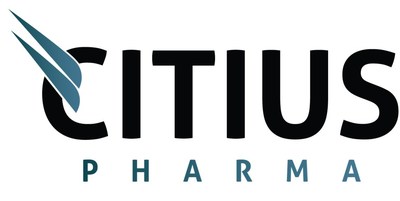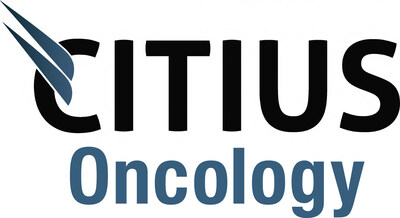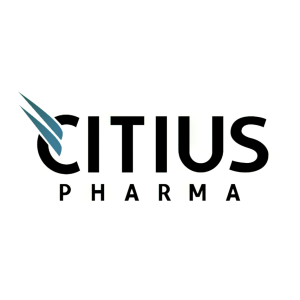Citius Pharmaceuticals, Inc. and Citius Oncology, Inc. Announce LYMPHIR™ (Denileukin Diftitox-cxdl) Added to National Comprehensive Cancer Network (NCCN) Clinical Practice Guidelines in Oncology
Rhea-AI Summary
Citius Pharmaceuticals and Citius Oncology announced that LYMPHIR™ has been added to the NCCN Clinical Practice Guidelines in Oncology with a Category 2A recommendation. This inclusion supports LYMPHIR as an appropriate treatment option for patients with Cutaneous T-cell Lymphoma (CTCL) who have undergone at least one prior systemic therapy.
LYMPHIR, a novel immunotherapy targeting the interleukin-2 receptor on malignant T-cells and Tregs, was recently approved by the FDA based on results from the Phase 3 Pivotal Study 302. The addition to NCCN Guidelines is expected to facilitate adoption and ease reimbursement, particularly for patients eligible for CMS coverage.
Positive
- LYMPHIR added to NCCN Clinical Practice Guidelines with Category 2A recommendation
- Recent FDA approval for LYMPHIR in treating relapsed or refractory CTCL
- Potential for improved patient outcomes in CTCL treatment
- Expected easier adoption and reimbursement due to NCCN Guidelines inclusion
Negative
- None.
News Market Reaction – CTXR
On the day this news was published, CTXR declined 1.82%, reflecting a mild negative market reaction.
Data tracked by StockTitan Argus on the day of publication.
LYMPHIR (denileukin diftitox-cxdl), a novel immunotherapy for the treatment of relapsed or refractory CTCL after at least one prior systemic therapy, was recently approved by the
"The inclusion of LYMPHIR in the NCCN Guidelines is a testament to the clinical evidence supporting this therapy, and further supports healthcare professionals in considering LYMPHIR as part of the recommended treatment protocols for CTCL. We are grateful to the NCCN board for its recognition of LYMPHIR, paving the way for expanded access to this important treatment option," stated Leonard Mazur, CEO of Citius Pharma and Citius Oncology.
"NCCN guidelines are widely regarded as the gold standard for clinical decision-making in oncology and hematology, influencing treatment practices and payor reimbursement in the
About LYMPHIR™ (denileukin diftitox-cxdl)
LYMPHIR is a targeted immune therapy for r/r (R/R) CTCL indicated for use in Stage I-III disease after at least one prior systemic therapy. It is a recombinant fusion protein that combines the IL-2 receptor binding domain with diphtheria toxin fragments. The agent specifically binds to IL-2 receptors on the cell surface, causing diphtheria toxin fragments that have entered cells to inhibit protein synthesis. After uptake into the cell, the DT fragment is cleaved and the free DT fragments inhibit protein synthesis, resulting in cell death. Denileukin diftitox-cxdl demonstrated the ability to deplete immunosuppressive regulatory T lymphocytes (Tregs) and antitumor activity through a direct cytocidal action on IL-2R-expressing tumors.
In 2021, denileukin diftitox received regulatory approval in
About Cutaneous T-cell Lymphoma
Cutaneous T-cell lymphoma is a type of cutaneous non-Hodgkin lymphoma (NHL) that comes in a variety of forms and is the most common type of cutaneous lymphoma. In CTCL, T-cells, a type of lymphocyte that plays a role in the immune system, become cancerous and develop into skin lesions, leading to a decrease in the quality of life of patients with this disease due to severe pain and pruritus. Mycosis Fungoides (MF) and Sézary Syndrome (SS) comprise the majority of CTCL cases. Depending on the type of CTCL, the disease may progress slowly and can take anywhere from several years to upwards of ten to potentially reach tumor stage. However, once the disease reaches this stage, the cancer is highly malignant and can spread to the lymph nodes and internal organs, resulting in a poor prognosis. Given the duration of the disease, patients typically cycle through multiple agents to control disease progression. CTCL affects men twice as often as women and is typically first diagnosed in patients between the ages of 50 and 60 years of age. Other than allogeneic stem cell transplantation, for which only a small fraction of patients qualify, there is currently no curative therapy for advanced CTCL.
INDICATION
LYMPHIR is an IL2-receptor-directed cytotoxin indicated for the treatment of adult patients with r/r Stage I-III cutaneous T-cell lymphoma (CTCL) after at least one prior systemic therapy.
IMPORTANT SAFETY INFORMATION
BOXED WARNING: CAPILLARY LEAK SYNDROME
Capillary leak syndrome (CLS), including life-threatening or fatal reactions, can occur in patients receiving LYMPHIR. Monitor patients for signs and symptoms of CLS during treatment. Withhold LYMPHIR until CLS resolves, or permanently discontinue based on severity.
WARNINGS AND PRECAUTIONS
Capillary Leak Syndrome
LYMPHIR can cause capillary leak syndrome (CLS), including life-threatening or fatal reactions. CLS was defined in the clinical trials as the occurrence of at least 2 of the following symptoms at any time during LYMPHIR therapy: hypotension, edema, and serum albumin <3 g/dL. These symptoms were not required to occur simultaneously to be characterized as capillary leak syndrome.
As defined, CLS occurred in
Regularly assess patients for weight gain, new onset or worsening of edema, dyspnea, and hypotension (including orthostatic changes). Monitor serum albumin levels prior to the initiation of each cycle of therapy and more often as clinically indicated.
Withhold, reduce dose, or permanently discontinue based on severity. If LYMPHIR is withheld, resume LYMPHIR following resolution of CLS and when serum albumin is greater than or equal to 3 g/dL.
Visual Impairment
LYMPHIR can cause serious visual impairment, including changes in visual acuity and color vision. In the pooled population across 3 clinical trials, visual impairment occurred in
Perform baseline ophthalmic examination and monitor as clinically indicated. If patients experience symptoms of visual impairment, such as changes in visual acuity, changes in color vision, or blurred vision, refer for ophthalmologic evaluation.
Withhold LYMPHIR until visual impairment resolves or permanently discontinue based on severity.
Infusion-Related Reactions
LYMPHIR can cause serious infusion-related reactions. Infusion-related reactions were reported in
Premedicate patients for the first three cycles prior to starting a LYMPHIR infusion [see Dosage and Administration (2.3)]. Monitor patients frequently during infusion. For Grade 2 or higher infusion reactions, premedicate at least 30 minutes prior to each subsequent infusion with a systemic steroid for at least 3 cycles.
Interrupt or discontinue LYMPHIR based on severity [see Dosage and Administration (2.4)]. Institute appropriate medical management.
Hepatotoxicity
LYMPHIR can cause hepatotoxicity. In the pooled safety population, elevated ALT occurred in
Monitor liver enzymes and bilirubin at baseline and during treatment as clinically indicated. Withhold, reduce dose, or permanently discontinue LYMPHIR based on severity.
Embryo-Fetal Toxicity
Based on its mechanism of action, LYMPHIR can cause fetal harm when administered to a pregnant woman. Verify the pregnancy status of females of reproductive potential prior to the initiation of LYMPHIR. Advise pregnant women of the potential risk to the fetus. Advise females of reproductive potential to use effective contraception during treatment and for 7 days following the last dose of LYMPHIR.
ADVERSE REACTIONS
The most common adverse reactions (≥
USE IN SPECIFIC POPULATIONS
Pregnancy
Risk Summary
Based on its mechanism of action, LYMPHIR can cause fetal harm when administered to a pregnant woman. There are no available data on the use of LYMPHIR in pregnant women to evaluate for a drug-associated risk. No animal reproductive and developmental toxicity studies have been conducted with denileukin diftitox.
Denileukin diftitox-cxdl causes depletion of regulatory T lymphocytes (Treg), immune activation, and capillary leak syndrome, compromising pregnancy maintenance. Advise pregnant women of the potential risk to a fetus.
In the
Lactation
Risk Summary
No data are available regarding the presence of denileukin diftitox-cxdl in human milk, the effects on the breastfed child, or on milk production. Because of the potential for serious adverse reactions in breastfed children, advise women not to breastfeed during treatment with LYMPHIR and for 7 days after the last dose.
Females and Males of Reproductive Potential
Based on its mechanism of action, LYMPHIR can cause fetal harm when administered to a pregnant woman.
Pregnancy Testing
Verify the pregnancy status of females of reproductive potential prior to initiating LYMPHIR.
Contraception
Females
Advise females of reproductive potential to use effective contraception during treatment with LYMPHIR and for 7 days after the last dose.
Infertility
Males
Based on findings in rats, male fertility may be compromised by treatment with. The reversibility of the effect on fertility is unknown.
Pediatric Use
Safety and effectiveness of LYMPHIR in pediatric patients have not been established.
Geriatric Use
Of the 69 patients with Stage I-III r/r CTCL who received LYMPHIR, 34 patients (
You may report side effects to the FDA at 1-800-FDA-1088 or www.fda.gov/medwatch. You may also report side effects to Citius Pharmaceuticals at 1-844-459-6744.
Please read Important Safety Information and full Prescribing Information, including Boxed WARNING, for LYMPHIR™ which will be available in the next few days.
About Citius Oncology, Inc.
Citius Oncology, Inc. (Nasdaq: CTOR) is a platform to develop and commercialize novel targeted oncology therapies. In August 2024, its primary asset, LYMPHIR, was approved by the FDA for the treatment of adults with relapsed or refractory CTCL who had had at least one prior systemic therapy. Management estimates the initial market for LYMPHIR currently exceeds
About Citius Pharmaceuticals, Inc.
Citius Pharmaceuticals, Inc. (Nasdaq: CTXR) is a biopharmaceutical company dedicated to the development and commercialization of first-in-class critical care products. In August 2024, the FDA approved LYMPHIR, a targeted immunotherapy for an initial indication in the treatment of cutaneous T-cell lymphoma. Citius Pharma's late-stage pipeline also includes Mino-Lok®, an antibiotic lock solution to salvage catheters in patients with catheter-related bloodstream infections, and CITI-002 (Halo-Lido), a topical formulation for the relief of hemorrhoids. A Pivotal Phase 3 Trial for Mino-Lok and a Phase 2b trial for Halo-Lido were completed in 2023. Mino-Lok met primary and secondary endpoints of its Phase 3 Trial. Citius is actively engaged with the FDA to outline next steps for both programs. Citius Pharmaceuticals owns approximately
Forward-Looking Statements
This press release may contain "forward-looking statements" within the meaning of Section 27A of the Securities Act of 1933 and Section 21E of the Securities Exchange Act of 1934. Such statements are made based on our expectations and beliefs concerning future events impacting Citius. You can identify these statements by the fact that they use words such as "will," "anticipate," "estimate," "expect," "plan," "should," and "may" and other words and terms of similar meaning or use of future dates. Forward-looking statements are based on management's current expectations and are subject to risks and uncertainties that could negatively affect our business, operating results, financial condition and stock price. Factors that could cause actual results to differ materially from those currently anticipated, and, unless noted otherwise, that apply to Citius Pharma and Citius Oncology, are: our ability to commercialize LYMPHIR and any of our other product candidates that may be approved by the FDA; our need for substantial additional funds; Citius Pharma's ability to meet Nasdaq's continued listing standards; the estimated markets for our product candidates and the acceptance thereof by any market; the ability of our product candidates to impact the quality of life of our target patient populations; risks relating to the results of research and development activities, including those from our existing and any new pipeline assets; our dependence on third-party suppliers; our ability to procure cGMP commercial-scale supply; our ability to obtain, perform under and maintain financing and strategic agreements and relationships; uncertainties relating to preclinical and clinical testing; the early stage of products under development; market and other conditions; risks related to our growth strategy; patent and intellectual property matters; our ability to identify, acquire, close and integrate product candidates and companies successfully and on a timely basis; government regulation; competition; as well as other risks described in our SEC filings. These risks have been and may be further impacted by any future public health risks. Accordingly, these forward-looking statements do not constitute guarantees of future performance, and you are cautioned not to place undue reliance on these forward-looking statements. Risks regarding our business are described in detail in our Securities and Exchange Commission ("SEC") filings which are available on the SEC's website at www.sec.gov, including in our Annual Report on Form 10-K for the year ended September 30, 2023, filed with the SEC on December 29, 2023, and updated by our subsequent filings with the Securities and Exchange Commission. These forward-looking statements speak only as of the date hereof, and we expressly disclaim any obligation or undertaking to release publicly any updates or revisions to any forward-looking statements contained herein to reflect any change in our expectations or any changes in events, conditions or circumstances on which any such statement is based, except as required by law.
Investor Relations for Citius Pharmaceuticals:
Investor Contact:
Ilanit Allen
ir@citiuspharma.com
908-967-6677 x113
Media Contact:
STiR-communications
Greg Salsburg
Greg@STiR-communications.com
![]() View original content to download multimedia:https://www.prnewswire.com/news-releases/citius-pharmaceuticals-inc-and-citius-oncology-inc-announce-lymphir-denileukin-diftitox-cxdl-added-to-national-comprehensive-cancer-network-nccn-clinical-practice-guidelines-in-oncology-302239014.html
View original content to download multimedia:https://www.prnewswire.com/news-releases/citius-pharmaceuticals-inc-and-citius-oncology-inc-announce-lymphir-denileukin-diftitox-cxdl-added-to-national-comprehensive-cancer-network-nccn-clinical-practice-guidelines-in-oncology-302239014.html
SOURCE Citius Pharmaceuticals, Inc.










